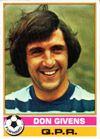| Barca - by Simon Kuper 12:30 - Sep 24 with 1418 views | Red_Ranger |
Top top read , if only just to get an i sight into Ajax and Cruyff. Recommend |  | | |  |
| Barca - by Simon Kuper on 13:13 - Sep 24 with 1305 views | BrianMcCarthy |
Thanks Red.
Might buy that. |  |
|  |
| Barca - by Simon Kuper on 14:09 - Sep 24 with 1242 views | TacticalR |
Earlier this year Simon Kuper published 'Chums: How a Tiny Caste of Oxford Tories Took Over the UK'.
It's an insider/outsider analysis of how Eton and Oxford train people to rule:
'Nor is Britain’s traditional ruling caste about to disband. Among developed countries, possibly only the twenty-first-century US has an elite raised in such isolation from everyone else. British toffs must be hoping that Oxford’s new-found egalitarianism is just a fad. As ever, they intend to adapt and hang on. Eton in 2015 built a vast debating chamber, deliberately unequipped with microphones or audio-visual aids so that the boys would learn how to project their voices in preparation for the Commons (which does have microphones). The feeding chain to the Union and on into the Conservative Party survives.'
(Chapter 17, What Is To Be Done)
'While we had spent eight hours a day with our classmates, the public schoolboys had spent twenty-four. We had been shaped chiefly by our parental homes, whereas they had been defined by school, which often branded them with nicknames that effectively replaced their given names. In Johnson’s case it was the reverse: the uninitiated knew him by his nickname, Boris, but only intimates called him by his real name, Al. The delineating effect was the same: one name for insiders, another for outsiders; upstairs, downstairs.
For an Etonian like Cameron, school would always remain his tightest network: it was Eton more than Oxford that would provide him with some of his closest aides and political allies, notably his chief of staff, Ed Llewellyn, his minister for government policy, Oliver Letwin, and the chair of the Number Ten Policy Board, Boris Johnson’s brother, Jo. My argument that Oxford is an independent variable shaping British power applies more to Johnson, Gove, Hannan et al. than it does to Cameron.'
(Chapter 2, Class war)
It also looks at how a particular subject, classics, mainly taught in private schools, enable easier entry into university:
'Since the referendum of 2016, it has become commonplace to associate Brexit with PPE. Ivan Rogers, for instance, a grammar-school boy who read history at Oxford, and the UK’s permanent representative to the EU until he resigned in 2017, discerned in Brexit ‘a very British establishment sort of revolution. No plan and little planning, oodles of PPE tutorial level plausible bullshit, supreme self confidence that we understand others’ real interests better than they do …’ But this is a misdiagnosis. In fact, in the 2016 referendum, 95 per cent of MPs who had studied PPE voted Remain. They included Cameron, Jeremy Hunt, Philip Hammond, William Hague, Matt Hancock, Liz Truss, Rory Stewart, Sam Gyimah, Damian Hinds, Nick Boles, the Milibands, Ed Balls, Yvette Cooper and Peter Mandelson. Most of these people were modernisers at heart, who had presumably chosen the degree in search of the cutting-edge knowledge needed to run a serious country. Among the rare PPEists to back Leave were Rishi Sunak, and, more consequentially, Rupert Murdoch, who in 1950s Oxford had been business manager of Cherwell. (Murdoch had also stood for secretary of the Labour Club, but was disbarred from holding office after an investigation into electoral malpractice conducted by the young Gerald Kaufman.)
By contrast, all the leading Oxford Tory Brexiteers studied backward-looking subjects: classics for Johnson, history for Rees-Mogg and Hannan, and ancient and modern history for Cummings. Gove’s degree was English, which mostly meant the canon.
The most Brexity degree among MPs in 2016 was classics: six of the eight classicists in the Commons voted Leave. Classics was a particularly public-school course, because so few state schools offered Latin and Greek. Rachel Johnson, who read classics at Oxford one year below her brother Boris, recites a few lines of Latin, then reflects: ‘All these things we had to learn by rote, so they stuck in the head, and you got into Oxford.’ By the time their brother Leo arrived, there were three Johnson siblings reading classics at Oxford simultaneously. Their brother Jo arrived in 1991 but did history.
In those days, if you came from the right class, classics was the easiest mainstream degree to get in for: in 1981, two years before Boris Johnson started his degree, Oxford admitted three-quarters of pupils who applied to study classics.'
(Chapter 3, A Little Learning) |  |
|  |
| Barca - by Simon Kuper on 18:47 - Sep 24 with 1074 views | SimplyNico |
Kuper is a top writer. Soccernomics is also excellent |  | |  |
| Barca - by Simon Kuper on 01:13 - Sep 26 with 863 views | NewBee |
@TacticalR "For an Etonian like Cameron, school would always remain his tightest network: it was Eton more than Oxford that would provide him with some of his closest aides and political allies etc"
Margaret Thatcher never went to Eton (obv) , with Harold MacMillan once noting that her Cabinet "... includes more Old Estonians than it does Old Etonians.”
This was an anti-Semitic dig from Macmillan, himself an Old Etonian, but it is revealing nonetheless that whatever else you may think about Thatcher, she was never the Establishment figure you might have expected from a Tory PM in her day.
Never played for Barcleona, either.
(Sorry for diverting the thread) [Post edited 26 Sep 2022 1:15]
|  | |  |
| |